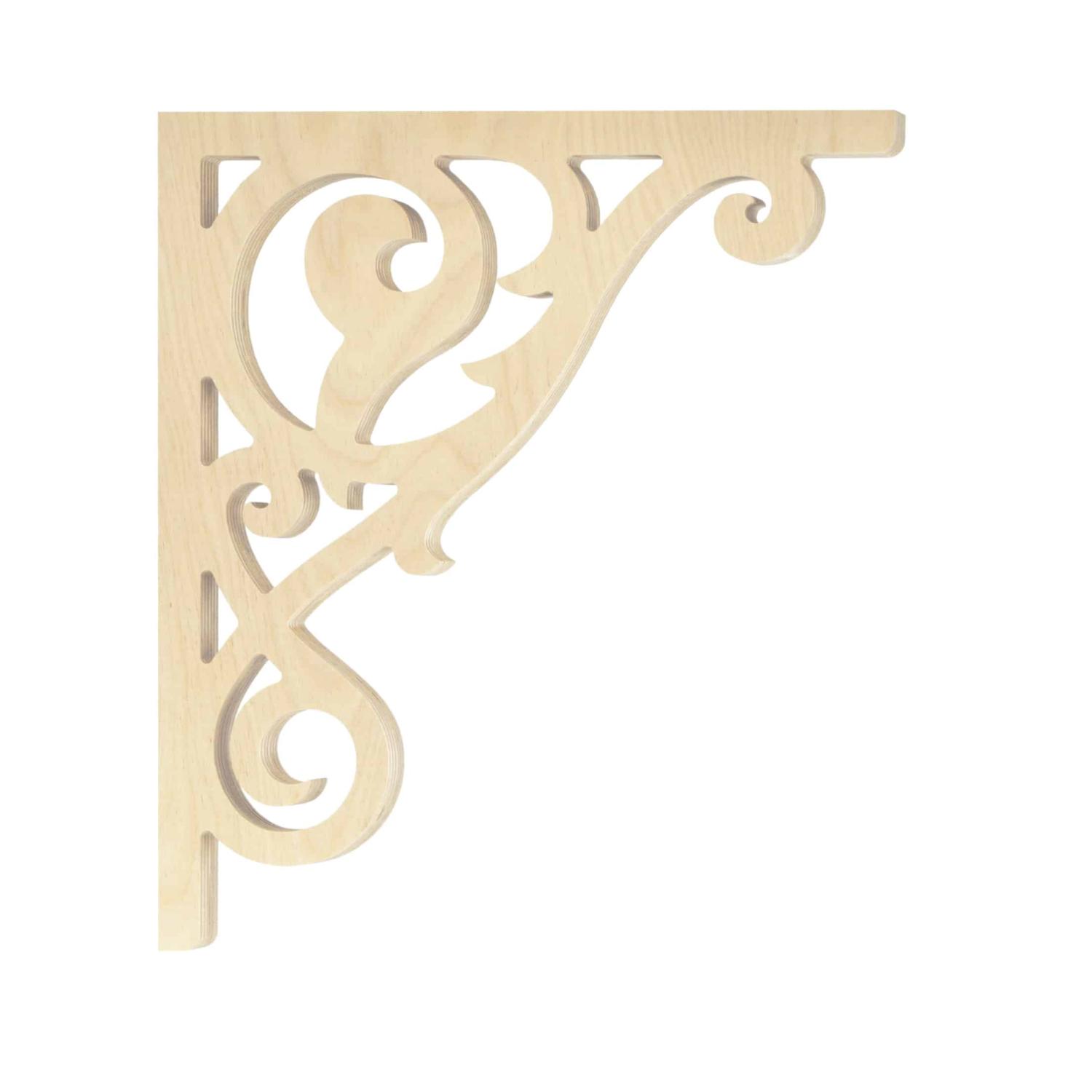Introduction to Decorative Wood Brackets
Decorative wood brackets have made a significant comeback in home decor, serving not only as functional supports but also as stunning decorative elements. In my personal experience, these brackets can transform an ordinary space into something extraordinary. From rustic charm to modern elegance, decorative brackets can fit various styles and enhance your home’s aesthetic appeal.
Types of Decorative Wood Brackets
Understanding the different types of decorative wood brackets can help you choose the right style for your home. Here’s a breakdown of the most common types:
1. Corbel Brackets
Corbel brackets are typically used to support shelves or countertops. They often feature intricate carvings, making them perfect for traditional and vintage styles.
2. L-Shaped Brackets
These brackets are versatile and can be used in various applications, offering both strength and a minimalist appearance.
3. Decorative Shelf Brackets
Designed specifically for shelves, these brackets come in a wide range of designs, from ornate to simple, allowing you to personalize your space.

4. Corner Brackets
Corner brackets are ideal for maximizing space in corners, providing support while adding aesthetic beauty to the layout.
Benefits of Using Decorative Wood Brackets
Incorporating decorative wood brackets into your decor can offer numerous benefits:
- Aesthetic Appeal: Decorative wood brackets add character and style to rooms.
- Functional Support: They provide necessary support for shelves and countertops.
- Versatility: Suitable for various styles, from farmhouse to contemporary.
- DIY Opportunities: Adding brackets can be a fun DIY project to personalize your home.

Choosing the Right Wood for Your Brackets
The type of wood you choose for your decorative brackets can significantly affect both the aesthetic and durability. Here’s a quick guide:
1. Hardwood vs. Softwood
Hardwoods like oak and walnut are denser and more durable, making them ideal for heavy-duty applications. Softwoods like pine are lighter and more affordable but may not bear as much weight.

2. Finish Options
Choosing the right finish can enhance the natural beauty of the wood. Options include natural stains, paints, and varnishes that can protect and highlight your brackets.
Design Ideas and Inspiration
Looking for inspiration? Here are some creative ideas for incorporating decorative wood brackets into your home:

1. Floating Shelves
Using decorative brackets to support floating shelves can add a unique touch to your living space, combining functionality with visual interest.
2. Kitchen Upgrades
Adding decorative brackets under a countertop or as part of a kitchen island can create a focal point while providing essential support.

3. Bathroom Vanities
Enhance your bathroom aesthetic by using wood brackets to support a floating vanity, creating a modern, streamlined look.
DIY Decorative Wood Brackets: A Step-by-Step Guide
Creating your own decorative wood brackets can be a rewarding project. Here’s a simple guide to get you started:

Materials Needed:
- Woodboard (choose your desired type)
- Wood screws
- Wood glue
- Sandpaper
- Paint or stain (optional)
- Measuring tape
- Saw (hand saw or power saw)
- Drill
Step-by-Step Instructions:
- Measure and Cut: Determine the size of the brackets you need and cut the wood accordingly.
- Shape the Brackets: Use a saw to create the desired shape, whether it’s a corbel or L-shape.
- Sand: Smooth the edges with sandpaper to avoid splinters.
- Paint/Stain: Apply your chosen finish and let it dry completely.
- Install: Securely attach the brackets to your desired location, ensuring they are level.
Pros and Cons of Decorative Wood Brackets
Pros
- Adds visual interest to any space.
- Can be made from sustainable materials.
- Increases functionality of shelves and countertops.
- Options available for every budget.
Cons
- Can require maintenance over time, such as refinishing.
- Heavy brackets may need professional installation.
- Requires careful selection to match your home’s style.
Comparing Decorative Brackets: A Quick Reference Table
| Type of Bracket | Main Use | Aesthetic Style | Weight Capacity |
|---|---|---|---|
| Corbel | Countertop Support | Traditional | High |
| L-Shaped | Shelf Support | Modern | Moderate |
| Decorative Shelf | Floating Shelves | Varied | Variable |
| Corner | Corner Shelves | Contemporary | Low to Moderate |
Frequently Asked Questions (FAQs)
What wood is best for decorative brackets?
Hardwood is generally best for durability and aesthetic appeal. Oak, maple, and walnut are popular choices.
Can I paint decorative wood brackets?
Absolutely! Painting or staining can enhance the look of your brackets, allowing you to match them with your decor.
How much weight can decorative wood brackets hold?
This varies based on the type and size of the brackets. Always check the manufacturer’s specifications before installation.
Are decorative wood brackets suitable for outdoor use?
While some wood types can be treated for outdoor use, most decorative wood brackets are intended for indoor applications.